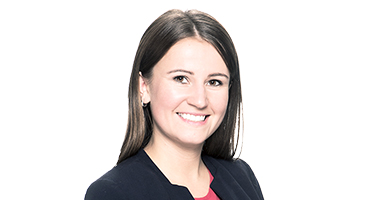Look at the possibilities
Private equity is upping investment in services firms — especially in firms that offer tech-driven business process outsourcing.
These investments might provide for significant tax benefits that can enhance returns. Some of these tax benefits include the Qualified Small Business Stock (QSBS) exclusion and Research and Development (R&D) tax credits. These tax benefits are usually associated with industries like manufacturing and technology, but they might also apply to services businesses with the right facts.
Service firms and private equity (PE) investors often have two misperceptions that keep them from exploring these tax benefits:
- I’m not investing in small companies.
For the purposes of QSBS, you might be. “Small” refers to the company having less than $50 million of assets at the time of the original investment. The ultimate exit value could be much more significant and still qualify. - We don’t do R&D.
Don’t be so sure. If you are developing software platforms or systems, you might qualify. You don’t need to be a manufacturer working on new products.
If services firms and their investors have overlooked the potential of these tax strategies, it’s time to unpack the possibilities.
Define “small” in QSBS
When stockholders sell qualified small business stock, they may be able to exclude up to 100% of their gain.

“You’re taking advantage of a provision that lets you exclude very large gains, as long as the gross basis of the assets is less than $50 million at the time of the original investment and other requirements are met.”
However, investors often don’t realize when their portfolio companies qualify. “When it comes to QSBS, ‘small’ doesn’t always mean all that ‘small,’” said Grant Thornton Tax Services Senior Manager Maggie Bafia. “You’re taking advantage of a provision that lets you exclude very large gains, as long as the gross basis of the assets is less than $50 million at the time of the original investment and other requirements are met.”
This strategy is perfectly aligned with a PE strategy of investing in relatively small companies, growing them, and then selling them.
For QSBS treatment, there are requirements that you need to meet up front. Qualification requires careful consideration when structuring transactions at the time of the investment. Also, the investor must be a non-corporate taxpayer and hold the stock for five years (lesser holding periods may still result in a deferral). The exclusion is limited to the greater of $10 million, or 10 times the adjusted basis (the original investment)
Corporations must satisfy certain requirements as well. Most notably, the corporation must meet the qualified active trade or business test, which requires detailed analysis of the business activities. The services industry has a number of disqualifying fields, like law, health, brokerage and banking, to name a few. Bafia noted, “It's really important that investors planning to take advantage of this provision fully vet those requirements up front.”
Research R&D qualifications
Even sophisticated investors often associate R&D with a limited slice of manufacturing and product development. But, if you’re a qualifying service company developing software, you can also claim an R&D credit under §41.

“When a company has a large IT organization developing software it can sell, lease, license or use for communicating with third parties, that might be considered for the R&D credit.”
The types of activities that qualify towards the credit is broad. Grant Thornton Tax Services Partner Kristen Chapman explained, “If a company has a large IT organization developing software that it can sell, lease, license or use for communicating and interacting with third parties, that might be considered for the R&D credit.” For instance, services firms can consider the credit if they are developing:
- mobile device applications or customer portals
- business process platforms and systems
- call center software systems integrated into hardware
- digital interfaces and integration software that allow different software systems to talk to each other
The credited expenses can include associated wages, materials, cloud computing and outside services. “If you’re paying AWS or Azure to house environments for development testing, that can be a significant expense for companies with a large tech organization,” Chapman said.
Some 2022 changes have made the credit even more attractive. Taxpayers might have the opportunity to no longer reduce the amount of their §174 R&D expenses by the amount of the credit. However, new rules do require that software development costs are capitalized and amortized over five years.
How structure affects strategy
Transaction and investment structure decisions you make have implications for both the QSBS and R&D tax benefits.

“The analysis of whether or not §1202 could apply often drives the decision to invest via corporate or flow-through structure, which needs to be raised up front.”
For QSBS, Grant Thornton Private Equity Tax Leader Melanie Krygier explained, “The analysis of whether or not §1202 could apply often drives the decision to invest via corporate or flow-through structure, which needs to be raised up front.” Krygier added that firms might prefer a flow-through structure for other potential tax benefits if they don't expect to benefit from §1202.
QSBS benefits are only available in C-Corp investments (which can be held through a pass-through entity). When combined with the low maximum corporate rate of 21%, the benefits afforded to QSBS make a powerful case for organizing as a C-Corp.
Whichever course you choose, there are significant tax savings opportunities which are often overlooked. Make sure to set aside traditional preconceptions as you research the requirements and uncover your opportunities.
Contacts:



Melanie K. Krygier
Principal, M&A Tax Services
Grant Thornton Advisors LLC
Melanie is a Principal, leading our M&A Tax Services practice for the West Region, with more than fourteen years of experience serving public and private multinational companies across multiple industries.
San Francisco, California
Service Experience
- Tax
- Transaction advisory



Maggie Bafia
Tax - Senior Manager
Mergers and Acquisitions Tax Services
Chicago, Illinois
Tax professional standards statement
This content supports Grant Thornton LLP’s marketing of professional services and is not written tax advice directed at the particular facts and circumstances of any person. If you are interested in the topics presented herein, we encourage you to contact us or an independent tax professional to discuss their potential application to your particular situation. Nothing herein shall be construed as imposing a limitation on any person from disclosing the tax treatment or tax structure of any matter addressed herein. To the extent this content may be considered to contain written tax advice, any written advice contained in, forwarded with or attached to this content is not intended by Grant Thornton LLP to be used, and cannot be used, by any person for the purpose of avoiding penalties that may be imposed under the Internal Revenue Code.
The information contained herein is general in nature and is based on authorities that are subject to change. It is not, and should not be construed as, accounting, legal or tax advice provided by Grant Thornton LLP to the reader. This material may not be applicable to, or suitable for, the reader’s specific circumstances or needs and may require consideration of tax and nontax factors not described herein. Contact Grant Thornton LLP or other tax professionals prior to taking any action based upon this information. Changes in tax laws or other factors could affect, on a prospective or retroactive basis, the information contained herein; Grant Thornton LLP assumes no obligation to inform the reader of any such changes. All references to “Section,” “Sec.,” or “§” refer to the Internal Revenue Code of 1986, as amended.
Our fresh thinking

No Results Found. Please search again using different keywords and/or filters.



Share with your network
Share